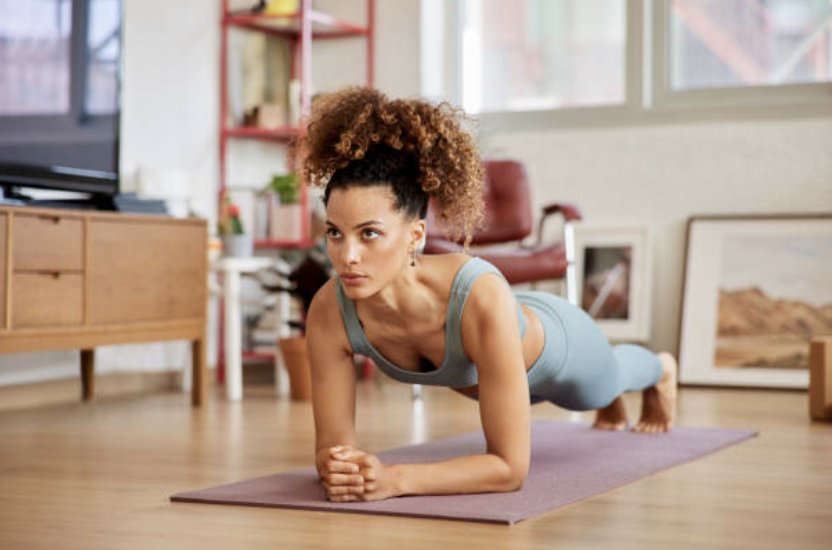When you hear the word “core,” you might picture a set of toned abs. While the abs are part of it, your core is much more than what you see in the mirror. Your core is a group of muscles that work together to give your body stability and power. They help you stand tall, move efficiently, and protect your spine from unnecessary strain when lifting heavy objects.
The Core: More Than Just Abs
Think of your core as a strong, supportive cylinder inside your body:
- Front & sides: Abdominal muscles (rectus abdominis and obliques)
- Back: Lower back muscles and glutes
- Top: The diaphragm (your breathing muscle)
- Bottom: Pelvic floor muscles
These muscles don’t just keep you upright, they connect your upper and lower body so you can move as one coordinated unit.
Why Does the Core Matter?
1. It Helps You Move Better
Your core is the link between your arms and legs. Whether you’re running, lifting, swimming, or playing sport, your core transfers energy so you can move efficiently. A weak core means more you waste effort and tire sooner.
2. It Protects Your Back
Your core works like a built-in brace for your spine. A strong, well coordinated core helps maintain good posture and reduces the strain on your joints, ligaments, and discs. This can prevent injuries and reduce everyday aches. However, it is important to remember that to build a resilient back is about a holistic approach that goes above core, it often involves addressing environmental factors, mobility issues, muscular impairments and limiting sedentary behaviour.
3. It Can Speed Up Recovery from Pain
Targeted core exercises can help people with low back pain move more easily and experience less discomfort. While core training isn’t the only solution, when it’s combined with full body strength work, movement retraining, and healthy lifestyle habits, results are even better.
4. It Improves Your Balance & Stability
Your core muscles keep you steady when you’re walking on uneven ground, changing direction quickly, or trying to hold your form when fatigue sets in. This is especially important for runners, older adults, and athletes in sports with quick changes of pace.
5. It Keeps You Moving Efficiently
A good core doesn’t mean stiff, locked abs. It means you can stabilise when you need to, but also move fluidly. Sports science research now emphasises dynamic stability over rigid bracing. In other words, your core should adapt and respond to movement, not fight against it.
What the Latest Research Says
- Sports performance: Core training can improve balance, running economy, and sport-specific performance when combined with other training.
- Injury prevention: Strong, coordinated core muscles help keep your movement patterns healthy, reducing stress on your back, hips, and knees.
- Back pain rehab: Core focused programs can provide better short-term relief than general exercise, though combining them with broader rehab plans works best.
Simple Core Exercises to Try
You don’t need a gym to strengthen your core you can start at home:
- Plank holds: Keep your body in a straight line from head to heels, breathing steadily.
- Dead bugs: Lie on your back, move opposite arm and leg slowly while keeping your back flat.
- Glute bridges: Lie on your back, lift your hips, and squeeze your glutes at the top.
- Side planks: Support yourself on one forearm, keeping hips lifted and body in line.
Start with 20–30 seconds per exercise and build up gradually. Aim for 2–3 short sessions per week.
Conclusion:
Your core is your body’s powerhouse. It’s not just about looking toned, it’s about moving well, staying strong, and protecting your body from injury. Whether you’re chasing a marathon personal best, running after your kids, or simply wanting to stay active without pain, investing in your core strength will pay off. Start small, stay consistent, and remember: a strong core supports a strong life.
The more proactive you are to seek treatment, the faster and often more affordable your recovery can be. Whether you’re dealing with pain, healing from an injury, or simply looking to improve your movement, our team is here to support you. Take the first step toward feeling your best, book an appointment with one of our experienced physiotherapists today. They’ll create a personalised rehabilitation plan tailored to keep your muscles and joints in top condition. Ready to start your health journey? Book your appointment now and let our friendly, expert team help you move better and feel stronger. Follow us on Facebook and Instagram for helpful tips on managing sports injuries and staying active.
This information is for educational purposes only and is not intended to replace the advice of your doctor or health care professional. We encourage you to discuss any questions or concerns you may have with your health care provider.

